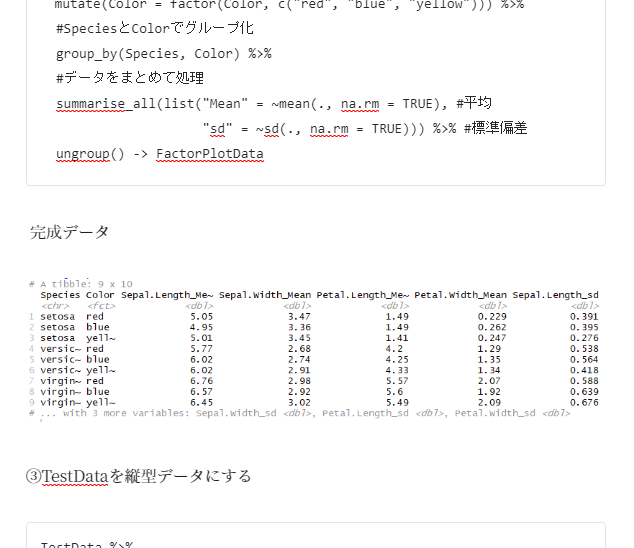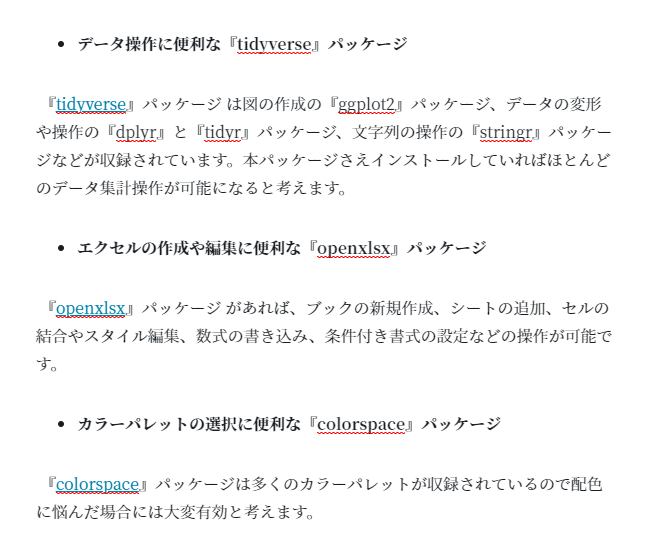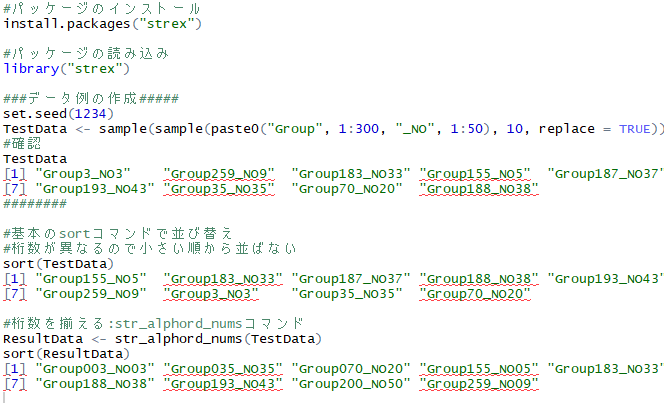データ集計でよく使っている「tidyverse」パッケージのコマンドです。マニアックなことはしていません。数は少ないですが基本的な内容です。
パッケージバージョンは1.2.1。windows 10のR version 3.5.2で動作を確認しています。
パッケージのインストール
下記コマンドを実行してください。
install.packages("tidyverse")データ例の作成
Rに標準で用意されているirisを変更して使用します。下記コマンドを実行してください。
#tibble形式に変換
as.tibble(iris) %>%
 #id情報を付与
rowid_to_column(var = "ID") %>%
 #Speciesに"_色情報"を付与
mutate(Species = str_c(Species,
c("red", "yellow", "blue"),
sep = "_")) %>%
 #列名Speciesを"Species_Color"に変更
 rename("Species_Color" = Species) %>%
 #データ順を変更
select(ID, Species_Color, everything()) -> TestData完成データ
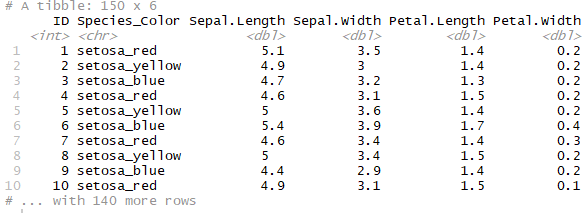
データの操作例
①Species_Colorごとの統計量を算出する。
TestData %>%
 #IDを除去
select(-ID) %>%
 #Species_Colorでグループ化
group_by(Species_Color) %>%
 #データをまとめて処理
summarise_all(list("Mean" = ~mean(., na.rm = TRUE), #平均
"sd" = ~sd(., na.rm = TRUE))) %>% #標準偏差
ungroup() -> PlotData完成データ

②Spcies_Colorデータを”Species”と”Color”に分割し
“Color” をred,yellow,blueの順序を持つFactorに変換後、 “Species”と”Color” ごとの統計量を算出する。
TestData %>%
#IDを除去
select(-ID) %>%
#Species_Colorを"_"で分割
separate(Species_Color, into = c("Species", "Color"), sep = "_") %>%
#Colorをred,blue,yellowの順序を持つFactor化
 mutate(Color = factor(Color, c("red", "blue", "yellow"))) %>%
#SpeciesとColorでグループ化
group_by(Species, Color) %>%
#データをまとめて処理
summarise_all(list("Mean" = ~mean(., na.rm = TRUE), #平均
"sd" = ~sd(., na.rm = TRUE))) %>% #標準偏差
ungroup() -> FactorPlotData完成データ

③TestDataを縦型データにする
TestData %>%
gather(key = "Label", value = "Value",
     -ID, -Species_Color) -> GatherData完成データ
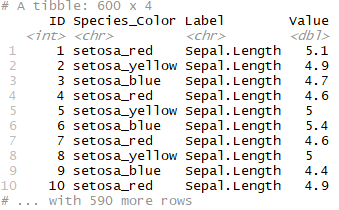
④GatherDataを横型データにする
GatherData %>%
spread(key = Label, value = Value)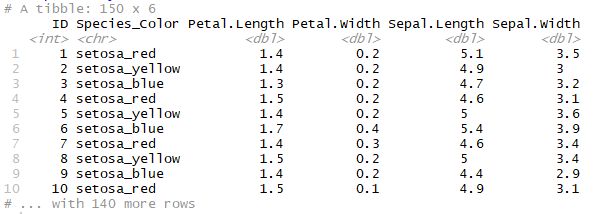
少しでも、あなたの解析が楽になりますように!!

